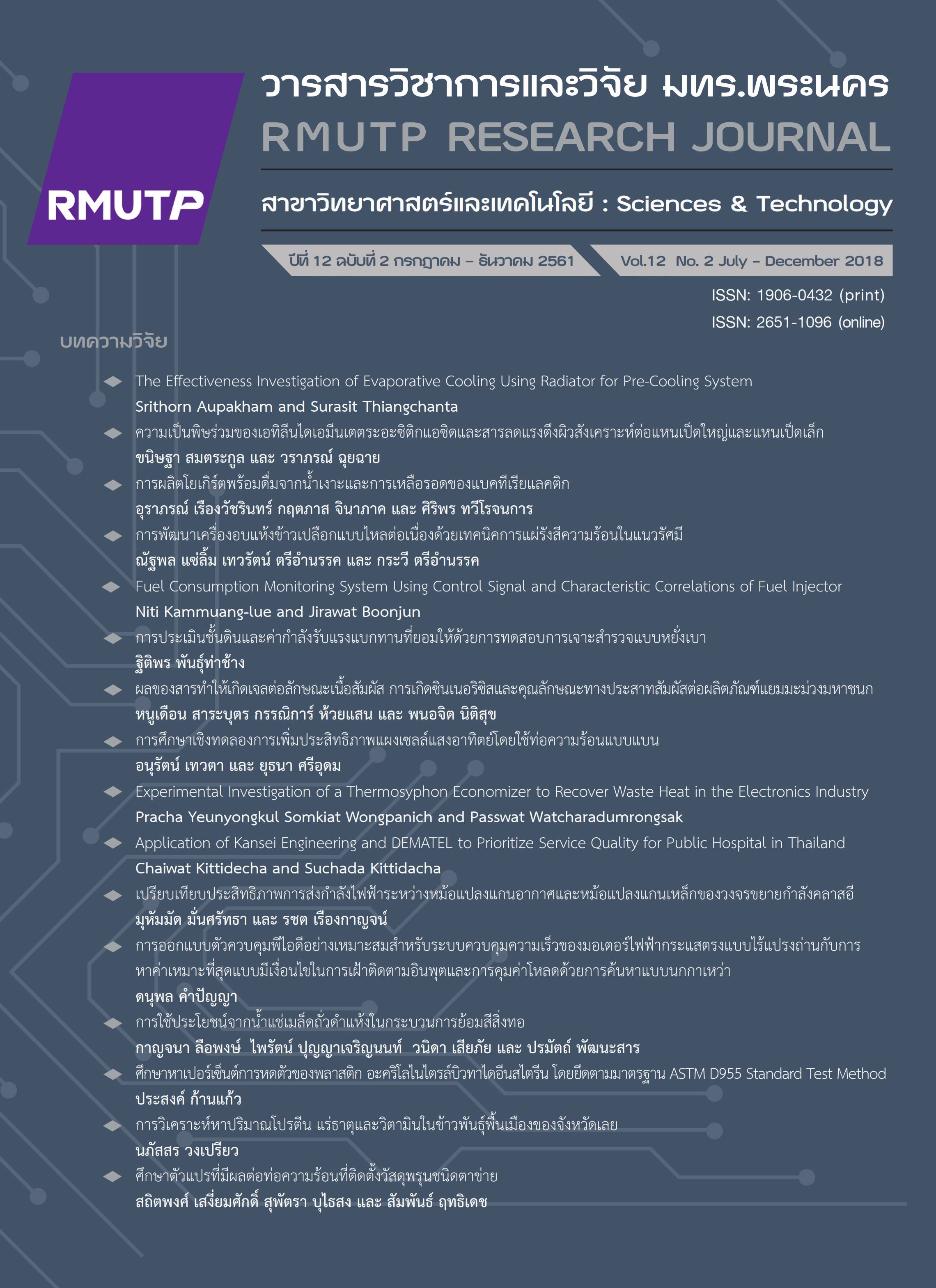An Experimental Study on Increasing Efficiency of Solar Cell Modules by Flat Heat Pipe Cooling
Main Article Content
Abstract
The purpose of this research was to improve the efficiency of solar cell modules by cooling with heat pipes. The test set consists of three 80 watt solar modules that made of mono-crystalline. The first module did not install heat pipes, while the second module installed heat pipes using ethanol as the working fluid and the third module installed heat pipes using R-11 as working fluid respectively. Solar radiation intensity, electrical energy produced by the solar modules, and temperature of the solar modules were recorded. The results showed that the average temperature of the first solar cell module was 52.9 °C and the efficiency was 9.3%, in the case of did not install heat pipes on solar module. With the units with heat pipes, it was found that unit with ethanol heat pipe had an average temperature of 50.7 °C and efficiency at 10.2%, whereas the temperature of the unit using R-11 heat pipe had an average temperature at 49.2 °C and efficiency at 11.8%. From the experiments, it was concluded that the installation of heat pipes can increase the efficiency of solar cell modules.
Article Details
References
[2] Nikom Phuengkum. Increasing Performance of Solar Cell Panels by Cooling System. Master’s Thesis, Department of Science in Physics. Prince of Songkla University. 2008.
[3] Prapatip Bhulla et.al., The Improvement of Photovoltaic Module Efficiency using Temperature Reduction Techniques,” SWU Engineering Journal, Vol. 8, pp. 1-10, July. 2013.
[4] Tungheng Yonsatitkul et.al., “A Study of the Efficiency of Performance in Solar Cell Panels by Copper Tube and Peltier for Cooling System,” in Proceeding of 1st national Forum on Creative Innovation The King’s Philosophy for Sustainable Development, Roi Et Rajabhat University, Roi Et, 2017, pp. 386-391.
[5] Surachet Sichamnan et.al., “Efficiency Enhancement of Solar Panels using Copper Mesh Wick Heat Pipe,” UBU Engineering Journal, Vol. 9, pp. 11-22, Jan. 2016.
[6] Pei.G., Fu.H., Zhang.T., and Ji.Jie., “A numerical and experimental study on a heat pipe PV/T system,” Solar energy, vol. 85, pp. 911-921. May 2011.
[7] Pei Gang., Fu Huide., Ji Jie., Chow Tin-tai., and Zhang Tao., “Annual analysis of heat pipe PV/T systems for domestic hot water and electricity production,” Energy Conversion and Management, Vol 56, pp. 8–21. December 2012
[8] Sampan Rittidech. Heat Pipe Technology, 2nd ed. Mahasarakham: Mahasarakham University Library Press, 2555.
[9] Y. Sriudom, S. Rittidech, T. Chompookham., The Helical Oscillating Heat Pipe: Flow Pattern Behaviour Study,” Advances in Mechanical Engineering, vol.7, pp.1-11 .January 1, 2015


